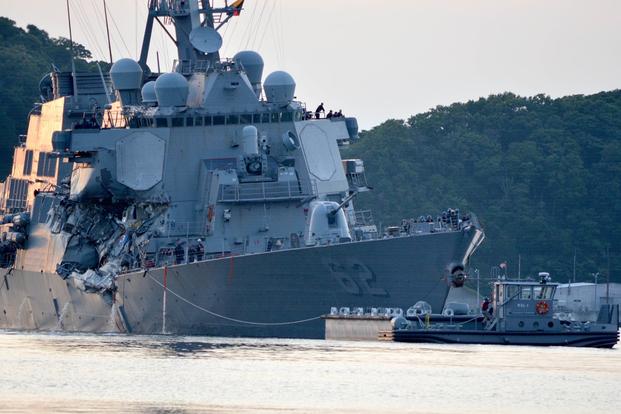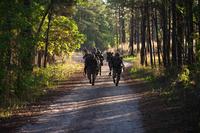Captain Paul Lobo holds a U.S. Masters License and Unlimited First Class Pilotage for San Francisco and Humboldt Bay, CA. He was appointed a San Francisco Bar Pilot in February, 1977, retiring in 2008. His first book, Crossing the Bar: The Adventures of a San Francisco Bay Bar Pilot, published by Skyhorse Press, was voted one of the top five nautical non-fiction books for 2016. This article originally appeared on The Maritime Executive.
As a retired lieutenant-commander in the U.S. Naval Reserve and a San Francisco bar pilot with 31 years' experience, I find the recent collisions of U.S. Navy vessels and the resulting loss of life disheartening and incomprehensible. Much to my dismay, these incidents could have been prevented -- that is, if the Navy would change the way it operates.
As a bar pilot, my job was bringing all vessels, great and small, into San Francisco Bay. That meant coming aboard and taking navigational control of the ship. During my career, I piloted 155 naval vessels, some foreign but most belonging to the U.S. Navy.
I have seen first-hand the Navy's expertise in military operations, but I have to conclude from the recent vessel collisions that the service appears to be becoming complacent. Within two months, in peace time, two Navy ships had accidents with multiple loss of life, and we've learned that training and certifications were lacking on both vessels.
Related content:
- Navy Fires Commander, XO from USS Fitzgerald for Fatal Collision
- McCain Collision Investigation a Test Case for Navy Cyber Experts
Today's Navy seems to have ignored the need to learn the basics of seamanship. One of the first rules of going to sea is relatively simple: if another ship is getting closer and their bearing stays the same, it will hit you. In admiralty law, a ship only has the right-of-way until she reaches extremis, and then she must get out of the way or will be found partially to blame.
There is no excuse for a modern destroyer not to get out of the way even if it has the right-of-way. Large commercial vessels take miles to stop, but the Navy's guided missile destroyers can maneuver on a dime. I know, because I piloted them.
Getting hit on your starboard side is a sure sign of not knowing the rules -- and what have been the consequences, given the fatalities? In 2007, one of my partners crashed a ship and spilled fuel oil into San Francisco Bay. He went to federal prison for 10 months for killing migratory birds.
What is the punishment for officers whose shipmates die due to their lack of knowledge? Did these watch officers get drug tested? Did they go to simulator school? Did they memorize the Rules of the Road?
In addition, there are far too many personnel on Navy ships, which is not only costly, but can be distracting when cruising at 25 knots. Consider that a modern 1,200-foot commercial container ship operates with only about 20 seafarers aboard, and the ship owners are talking about unmanned ships as we speak. A destroyer like the USS McCain has 281 men and women aboard.
I have piloted several carriers and counted as many as 40 people on the bridge while we were entering port, and it makes for a distracting work environment. The Navy culture relies on the use of many assistants. There are advantages to the system, to be sure, but aboard ship, without one individual "running the show,” the potential for confusion and error increases exponentially. Yet, still, the Navy way continues.
My training at New York Maritime College and decades of experience as a Navy Reserve officer and bar pilot tell me that any investigation into the recent collisions should focus on the basics. Hopefully, any investigative commission will include recommendations that the Navy look to commercial fleets for ways to improve seagoing operations in the future.
Less redundancy in terms of personnel, a greater emphasis on basic seamanship, and a willingness to streamline operations may well avoid future disasters. Navy traditions are near and dear to this old sailor's heart, but rethinking the "Navy way" is critical if we are to avoid more tragedy. As we have sadly seen, lives hang in the balance.
The opinions expressed in this op-ed are those of the author and do not necessarily reflect the views of Military.com.
-- If you would like to submit your own commentary, please send your article to opinions@military.com for consideration.




























